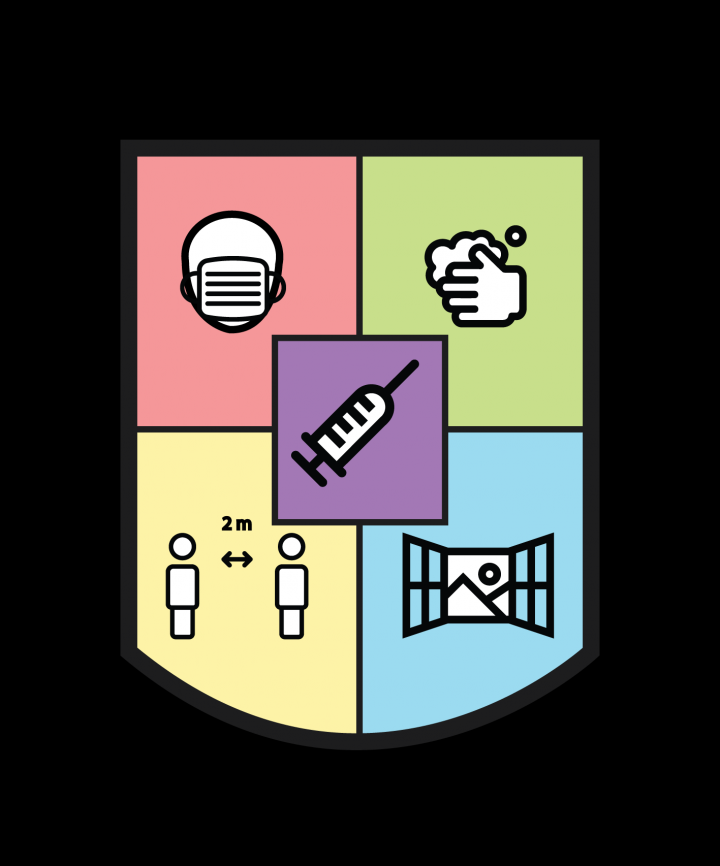Resources on managing the COVID-19 pandemic for NGOs
Information and resources for NGOs and CSOs to work with communities on COVID-19
We have put together information from around the web that local organizations, government representatives and others can use for community outreach to inform people how to avoid catching COVID-19, or managing home care for patients.
Images

Image: The CABs © Aryaman Jacob -
India has recorded approximately 45 million COVID-19 cases since the pandemic began. A third wave is starting in 2022, but in 2021, India experienced a second wave that was more severe and spread faster than the first in 2020.
To slow and ultimate stop the spread, urgent actions are needed involving COVID-19 appropriate behaviour (CAB). These protective actions include frequent and thorough handwashing with soap, using masks and physical distancing. The Ministry of Health and Family Welfare has identified 15 CABs as our understanding of the disease has evolved.
On 5 May 2021, World Hand Hygiene Day, we organized a webinar on CABs. More than 270 people attended the webinar where the Call to Action was presented. Several organizations expressed their support to the Call and spoke about the need to propagate it widely. Participants spoke about the need promote CABs and safe isolation in constrained settings especially among the vulnerable and marginalised. Networks of self-help groups, youth clubs and swachhagrahis could be engaged to promote CABs.
Capacity building at all levels was needed from the decision makers up to the front-line workers around CABs, said participants. Alongside, suitable and updated IEC materials, available from a central location in multiple languages should be provided. Technical guidelines on various aspects – handwashing points, wearing masks, ventilation and physical distancing – was also needed to ensure the correct hardware was available and used.
The recording of the webinar is available at this link (copy and paste it into your browser):
https://sphereindia-covid19academy.zoom.us/rec/share/-WEb37pMOq8bStvpp56ZaGkM_6mLaVv0uaKGN6qu0Qdg1Y1S1Ml2to1rY90FM0-3.yN4bGuQ6bWJd3Qme.
Use the passcode of WaterAid_050521 to access it.
As a follow up, we initiated a two-part e-discussion on the SuSanA India forum to elicit information from members on how they have promoted CABs with marginalized/vulnerable groups reached including what worked well, what did not work, coverage (state, district), open source resources.
Letter from the Government to district collectors
The National Disaster Management Authority, Government of India, has instructed all district collectors and magistrates to set up a coordination mechanism to engage NGOs in attempts to stymie the COVID-19 pandemic. This letter, following a meeting with nearly 1000 NGOs, lays out how this is to be done. See the PDF below.
Human rights advisory on Right to Health in view of COVID-19
The National Human Rights Commission of India issued this advisory to state governments on actions to be taken to ensure peoples' Right to Health. See the PDF below.
Instructions to panchayats about managing adult COVID-19 patients
The Government of India has written to panchayats suggesting ways to make people more aware about how to protect themselves from COVID-19 and manage adult COVID-19 patients. See the PDF below.
Niti Aayog advisement to NGOs
Niti Aayog, the think tank of the Government of India, has send out a letter informing NGOs about materials available on promoting the use of masks. See the PDF below.















